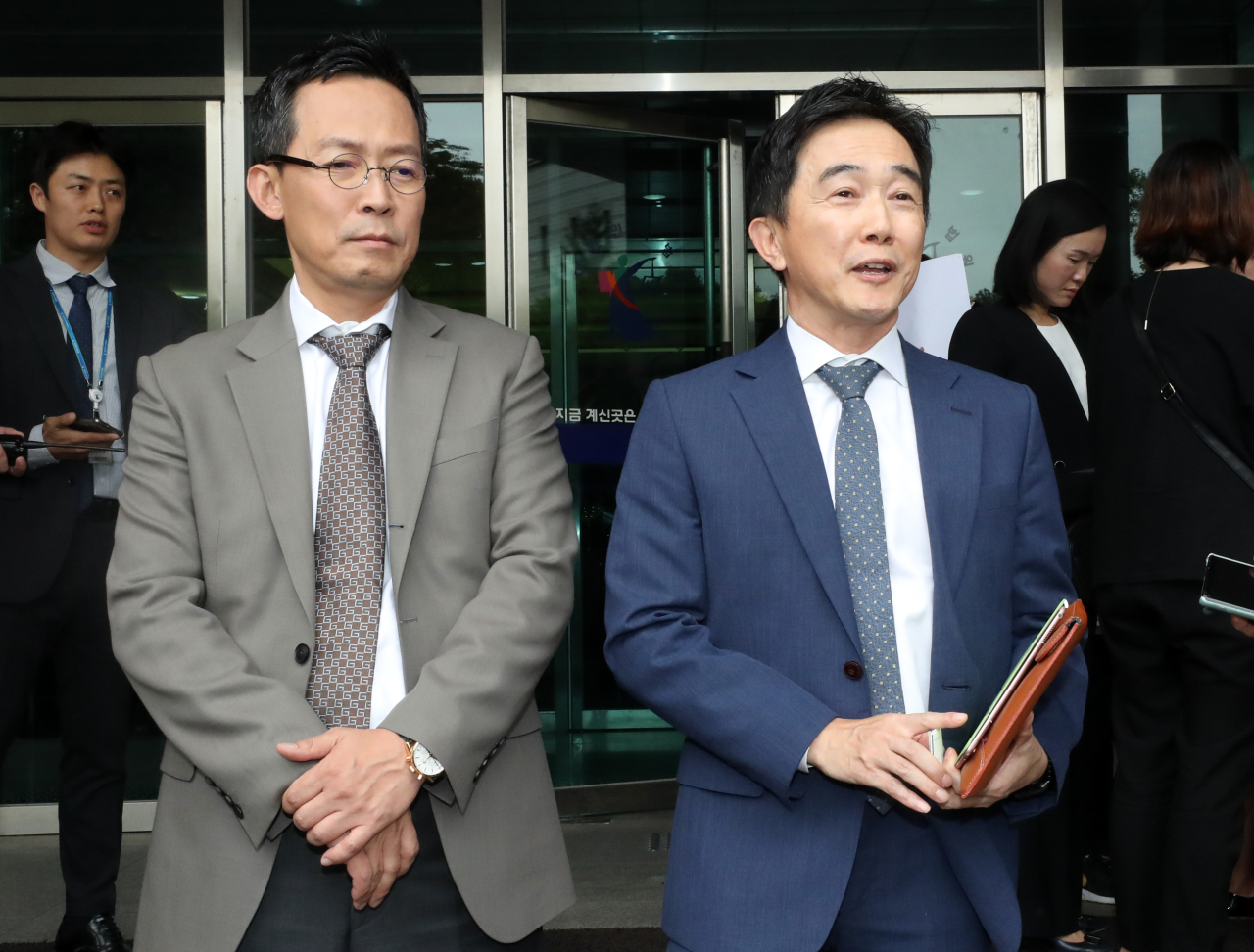Steve Yoo had no intention to dodge military duty: lawyers
By YonhapPublished : Sept. 20, 2019 - 18:25
Lawyers for a Korean-American K-pop star on Friday called on the court to carefully examine whether it is legal for the justice ministry to deny him entry into the country for nearly two decades for dodging military service, in line with a top court ruling in his favor.
During the first hearing of the case at the Seoul High Court after it was returned from the Supreme Court, the singer also insisted he had no intention to evade conscription.

In July, the top court overruled a lower court decision that the entry ban against Steve Yoo, known here by his Korean name, Yoo Seung-joon, is legal as he renounced his Korean citizenship in order to avoid compulsory military service. It then sent the case back to the Seoul High Court for reconsideration.
Debuting in South Korea in 1997, Yoo was one of the most popular K-pop singers until January 2002, when he gave up his Korean citizenship, sparking an enormous public outcry that he did so to dodge military service.
In Korea, almost all able-bodied men over the age of 20 are obliged to do a period of military service, usually lasting 21 months.
Since then, the South Korean immigration office has banned him from entering the country. Later, while working as an actor in China, Yoo unsuccessfully tried several times to have the entry ban lifted.
He turned to legal action against the South Korean consulate general in Los Angeles to fight his case in the Seoul Administrative Court in 2016 and last year but lost both times. The court ruled that the consulate's refusal to issue him a South Korean visa was legal, saying if he returns to South Korea and resumes activities, it will demoralize soldiers who are devoting themselves to serving the country, while provoking young men to evade the conscription.
On July 11, however, the top court ruled that it is illegal for the government to refuse him an entry visa.
"The (defense counsel) asks (the appellate court) to closely look into the illegality of the refusal of the issuance of Yoo's visa to correspond to the purpose of the top court's verdict," his lawyers said during the first defense hearing. They insisted the step could be deemed an abuse of power.
The abandonment of Korean citizenship cannot be a basis for concluding that Yoo intended to dodge military service, the counsel said.
"(Yoo) acquired U.S. citizenship pertinent to legal procedures as his family had permanent residency (at that time)," the counsel said.
The lawyers also claimed that it is excessive to limit Yoo's entry for 17 years given the period of any entry ban, even against a foreigner who serves a jail sentence, is less than five years
The high court decided to hand down a ruling on Nov. 15.
(Yonhap)








![[Graphic News] More Koreans say they plan long-distance trips this year](http://res.heraldm.com/phpwas/restmb_idxmake.php?idx=644&simg=/content/image/2024/04/17/20240417050828_0.gif&u=)
![[KH Explains] Hyundai's full hybrid edge to pay off amid slow transition to pure EVs](http://res.heraldm.com/phpwas/restmb_idxmake.php?idx=644&simg=/content/image/2024/04/18/20240418050645_0.jpg&u=20240419100350)






![[From the Scene] Monks, Buddhists hail return of remains of Buddhas](http://res.heraldm.com/phpwas/restmb_idxmake.php?idx=652&simg=/content/image/2024/04/19/20240419050617_0.jpg&u=20240419175937)

![[KH Explains] Hyundai's full hybrid edge to pay off amid slow transition to pure EVs](http://res.heraldm.com/phpwas/restmb_idxmake.php?idx=652&simg=/content/image/2024/04/18/20240418050645_0.jpg&u=20240419100350)

![[Today’s K-pop] Illit drops debut single remix](http://res.heraldm.com/phpwas/restmb_idxmake.php?idx=642&simg=/content/image/2024/04/19/20240419050612_0.jpg&u=)